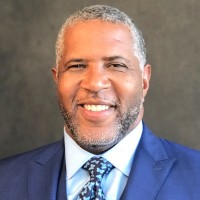Key Takeaways:
- Historically Black Colleges and Universities (HBCUs) have graduated a multitude of famous alumni within their collegiate programs.
- HBCUs span the U.S., with locations in Delaware, Tennessee, North Carolina, Texas and Florida.
- Famous HBCU graduates include Spike Lee, Thurgood Marshall, Kamala Harris and Katherine Johnson.
Table of Contents
For centuries, Historically Black Colleges and Universities (HBCUs) have produced prominent figures in society, including innovators, visionaries, pioneers, disruptive players in industries, executives, leaders and those within the sports and entertainment sectors.
Here, we take a look at the history of HBCUs and how these colleges and universities thrive with less financial support than many of their counterparts. And, we explore some renowned and famous HBCU graduates.
A Brief History of HBCUs
HBCUs were established to help Black Americans succeed in education when lawful racial discrimination and racial strife were widespread in the United States. Cheyney University in Pennsylvania was the first to open in 1837, followed by Lincoln University in Pennsylvania and Wilberforce University in Ohio. More and more HBCUs were founded throughout the 19th century, but it was the Freedmen’s Bureau, a U.S. Congress-initiated agency, and The Morrill Act of 1890 that helped pioneer many of the HBCUs in existence today.
Today, HBCUs can be found throughout the U.S. and represent some of the country’s most pre-eminent higher education institutions. HBCUs offer both four-year public and private education, many with HBCUs graduate programs. There are approximately 101 HBCUs throughout the U.S., which produce:
- 80% of Black judges
- 40% of Black engineers
- 12.5% of Black CEOs
- 50% of Black lawyers
How HBCUs Succeed Despite Less Funding
While HBCUs produce some of the country’s greatest scholars, doctors and lawyers, and many famous HBCU graduates, historically, HBCUs have received less funding than predominantly white colleges and universities, with only approximately one-eighth of endowments going to HBCUs. In fact, most HBCUs have endowments of less than $50 million and donations from alumni totaling about 15%.
However, HBCUs and notable HBCU graduates have received funding from philanthropists like MacKenzie Scott and Robert F. Smith that spark graduates to lead, innovate and inspire others. Scott donated gifts of $40 million and $50 million to Howard University and Prairie View A&M University, respectively. Smith pledged to pay off the student loan debt of the 2019 Morehouse graduating class with a donation of $34 million.
10 Notable HBCU Graduates
Several eminent and acclaimed individuals are graduates of some of the top HBCUs, including Vice President Kamala Harris (Howard University), Langston Hughes (Lincoln University), Samuel L. Jackson (Morehouse College), Lionel Richie, (Tuskegee University) and Oprah Winfrey (Tennessee State University).
Here are a few other famous HBCU graduates who changed the world through innovation, social advocacy, entrepreneurship, sports and entertainment.
1. Katherine Johnson, West Virginia State University
Katherine Johnson graduated with a bachelor of science in mathematics and French from West Virginia State College (now West Virginia State University) in 1937.
She then went on to work at the all-Black sector of the West Area Computing section at the National Advisory Committee for Aeronautics’ (NACA’s) Langley laboratory, where she worked in the Flight Research Division. She worked for over 30 years at NASA, doing trajectory analysis for America’s first human spaceflight, co-authoring reports, checking mathematical computations for John Glenn’s orbital mission and performing calculations to sync Project Apollo’s Lunar Module with the lunar-orbiting Command and Service Module.
Johnson retired from NASA in 1986. She received the Presidential Medal of Freedom from President Barack Obama in 2015.
2. George Alcorn, Howard University
George Alcorn, physicist and engineer, invented the x-ray spectrometer and the airborne topographic mapping system. He graduated from Howard University with a master of science in nuclear physics and a Ph.D. in atomic and molecular physics. Following his graduation from Howard University, Alcorn started his career at IBM as a physicist. In the span of his accomplished career, Alcorn acquired more than 30 patents for physics-related inventions.
While at NASA Goddard Space Flight Center (GSFC), Alcorn’s patent for the x-ray imaging spectrometer was accepted. Additionally, his work has helped map planets and study deep-space phenomena.
Alcorn was inducted into the National Inventors Hall of Fame® in 2015.


Get Industry leading insights from Robert F. Smith directly in your LinkedIn feed.
Get Industry leading insights from Robert F. Smith directly in your LinkedIn feed.
3. Reverend Jesse Jackson, North Carolina A&T State University
Reverend Jesse Jackson, one of the most famous HBCU graduates, graduated from North Carolina Agricultural and Technical College (now North Carolina Agricultural and Technical State University) in 1964 with a bachelor of arts in sociology. After graduating from North Carolina A&T, Jackson worked for the Southern Christian Leadership Conference (SCLC), leading the Operation Breadbasket program in Chicago in 1966.
He was heavily involved in the Civil Rights Movement, participating in sit-ins and working alongside Dr. Martin Luther King, Jr. to fight for equal rights for Black Americans.
The civil rights leader helped found the Chicago Freedom Movement and founded organizations, such as People United to Save Humanity (PUSH) and the National Rainbow Coalition, later merging to become Rainbow/PUSH Coalition in 1996.
Jackson pursued the Democratic Party’s presidential nomination in 1984 and 1988.
4. W.E.B. Du Bois, Fisk University
Scholar, orator, advocate and author of “Striving of the Negro People” (1897) and “The Souls of Black Folk” (1903), W.E.B. Du Bois was an HBCU graduate of Fisk University in Nashville, Tennessee. Du Bois was a founding member of the NAACP, served as the editor of the organization’s monthly magazine, “The Crisis,” and led special research for the NAACP.
He also earned his Ph.D. in philosophy from Harvard University, the first Black American to do so.
5. Janice Bryant Howroyd, North Carolina A&T State University
Janice Bryant Howroyd, one of the most successful HBCU graduates, is the founder and CEO of the billion-dollar, award-winning company The ActOne Group. Howroyd’s company is a workforce solutions, talent placement and talent enterprise organization. The company operates multiple flagship brands across the globe, including AppleOne. She graduated from North Carolina Agricultural and Technical State University with a dual degree in humanities and English.
6. Earl G. Graves Sr., Morgan State University
Earl G. Graves, Sr. was the founder of Black Enterprise Magazine and a graduate of Morgan State College (now Morgan State University), receiving his bachelor’s degree in economics. He served as Chairman of the parent company Earl G. Graves, Ltd., which oversaw Earl G. Graves Publishing Co.
Before founding Black Enterprise Magazine, Graves was the CEO and Chairman of Pepsi-Cola of Washington, D.C., L.P. Graves went on to be named one of Fortune Magazine’s 50 most powerful and influential Black Americans in the corporate space. Morgan State University’s School of Business and Management is named after Graves.
7. Bob Hayes, Florida A&M University
Robert Lee “Bob” Hayes is a Florida Agricultural and Mechanical (A&M) University graduate, a two-time Olympic gold medal holder and Super Bowl winner. He was regarded as the world’s fastest human after capturing track and field gold medal wins at the Tokyo Olympics in 1964. Hayes, who attended Florida A&M on an athletic scholarship, helped secure track and field championships for the university.
He then went on to play in the National Football League (NFL) with the Dallas Cowboys. Hayes was inducted into the Olympic Hall of Fame, Pro Football Hall of Fame and the Florida A&M Sports Hall of Fame.
8. Althea Gibson, Florida A&M University
Tennis phenom Althea Gibson attended Florida A&M University on a sports scholarship and received her bachelor of arts degree. She then became the first Black American to win a coveted Grand Slam championship, eventually procuring five Grand Slam titles. Moreover, she was a force to be reckoned with on the golf course, being the first Black woman to participate in the Ladies Professional Golf Association Tour.
Gibson was the first Black American to compete and capture titles in the U.S. Nationals and Wimbledon. She was also the first Black American tennis player to win a French Open title.
9. Spike Lee, Morehouse College
Academy Award-winner, renowned filmmaker and one of the most famous HBCU graduates, Spike Lee is a graduate of Morehouse College’s class of 1979, earning a degree in communications. He also attended film courses at another HBCU, Clark Atlanta University, during his tenure at Morehouse College. He received his MFA in Film in Television from New York University.
Lee is famous for his films, including “Do the Right Thing,” “She’s Gotta Have It,” “School Daze,” “He Got Game,” “Inside Man,” “Malcolm X” and “A Huey P Newton Story.” He has also directed music videos for artists such as Anita Baker, Prince and Michael Jackson.
10. Alice Walker, Spelman College
Alice Walker, author of the Pulitzer Prize-winning novel “The Color Purple” (1982), attended Spelman College in Atlanta, Georgia, but ultimately transferred and earned a degree from Sarah Lawrence College. “The Color Purple” was later adapted into a film and musical.
Walker’s writings include “The Third Life of Grange Copeland,” “Revolutionary Petunias and Other Poems,” “In Love and Trouble: Stories of Black Women” and “You Can’t Keep a Good Woman Down.”
Stay updated with the latest from Smith, his support, and other famous HBCU graduates’ support, of HBCU education by following him on LinkedIn.






